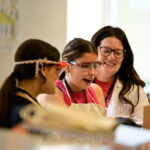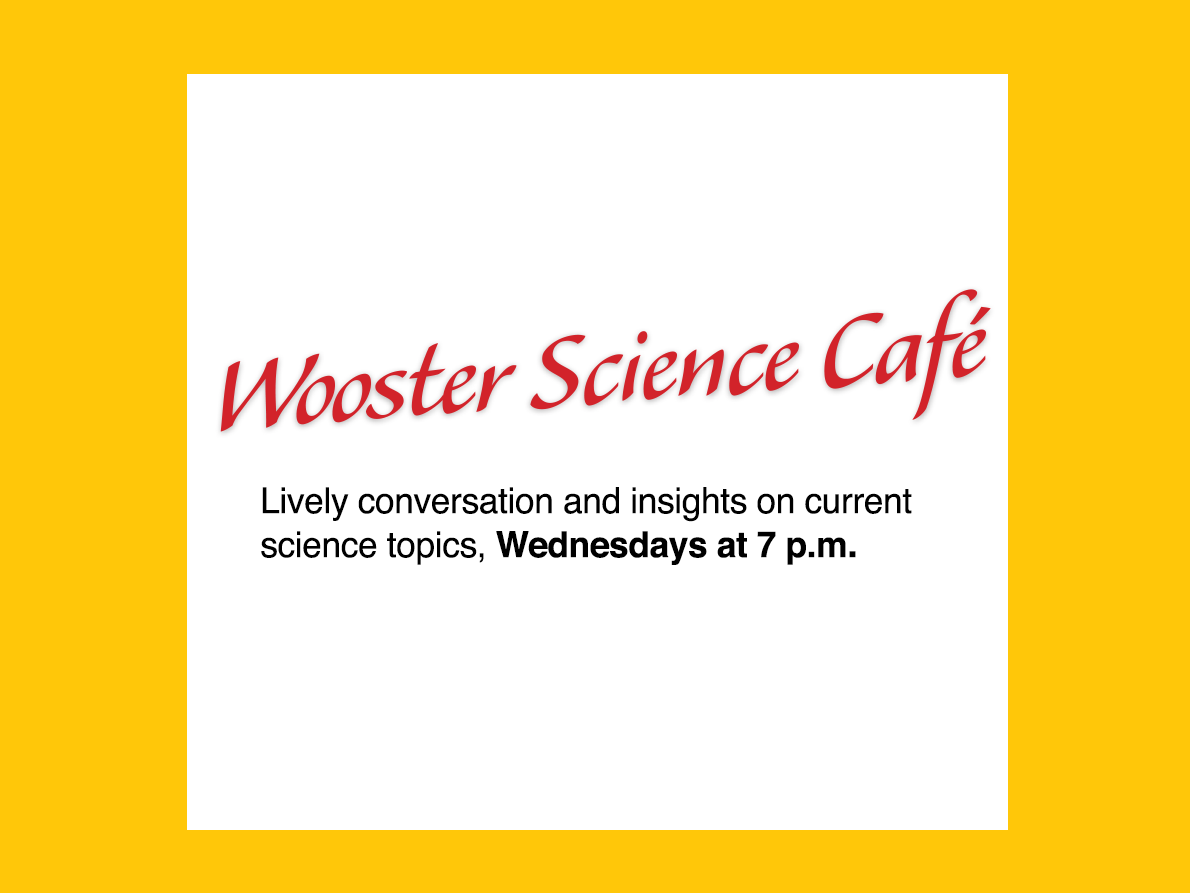
Wooster Science Café resumes this spring beginning Feb. 24

In its eighth season, Wooster Science Café will resume this spring on Zoom on Wednesday, Feb. 24, 2021 at 7 p.m. EST. Sponsored by The College of Wooster and The Ohio State University, the monthly series brings together those interested in science in the community to talk about and experience science.
“We feel that now more than ever the importance of effective science communication and respectful dialogue is essential. We also hope that these events bring some joy and normalcy to our community,” said Laura Sirot, one of the co-founders and co-coordinators of the Science Café and associate professor of biology at Wooster. Sirot noted that when the events took place in the fall, organizers were excited to have many participants join in from out of town thanks to the digital format. Those interested can “tune in” with or without a Zoom account by clicking this link at 7 p.m. on Feb. 24. Subsequent events will be available at the same link on the designated dates. If local health conditions allow, Sirot noted that they hope to hold an open house in May to celebrate being outdoors again and sharing science in person with the community.
The first event this spring will feature Jennifer Faust, assistant professor of Chemistry at Wooster, who will discuss “Chemicals, Clouds, and Climate.” How do chemicals enter the air we breathe? What happens when these chemicals are transported into the atmosphere? More specifically, how do chemicals affect clouds, and how do clouds affect climate? Faust will lead a discussion of how chemicals move between soil, water, and air, and the conversation will explore how cloud chemistry complicates our understanding of climate change.
On March 24, Uttara Samarkoon, assistant professor, Greenhouse and Nursery Management at The Ohio State University College of Food, Agricultural, and Environmental Sciences, will speak on the topic, “Do you have hydroponic produce on your plate?” What is hydroponics? Where and how are these crops produced? This presentation will explore these questions and the contribution of hydroponics to food availability, urban farming and maintaining the produce quality. This presentation will also outline the opportunities to make hydroponic technologies more sustainable.
On April 28, Luis Cañas, associate professor at The Ohio State University College of Food, Agricultural, and Environmental Sciences, will address “Biological control, a 21st century technique to grow healthy plants.” How do we produce healthy plants? What is Integrated Pest Management? What is Biological Control? Ohio is one of the leading states in the production of plants in controlled environments. To successfully produce food crops that are healthy, we use techniques that include integrated pest management. This means the use of different tactics to successfully prevent and control pests. One of those tactics is the use of biological control, which is the use of beneficial organisms that do not impact plants or humans to manage pests. At the same time the use of biological control reduces our reliance on insecticides. Canas will explain how biological control works and how it is used to keep plants healthy in the greenhouse, and how this can also be used at home.
On May 19, Laura Burch, associate professor, French and Francophone Studies, at The College of Wooster covers that topic “Are You Serious? Women and Science in France and Europe Before 1800.” What counts as “serious” scientific research? What assumptions do we have about who can do “serious” science? What’s gender got to do with it? This talk explores the connections between how we think about the answers to these questions now and how people thought about them during the era in which modern understandings of science were born.
Posted in News on February 15, 2021.
Related Posts
Related Areas of Study
French & Francophone Studies
French language, literature and culture with study abroad and outside-the-classroom immersion opportunites
Major MinorChemistry
Access to labs, research opportunities, and small classes give chemistry majors lots of options after graduation.
Major MinorBiology
Explore molecular and cellular biology, ecology and more with top faculty and access to extensive lab facilities.
Major Minor

